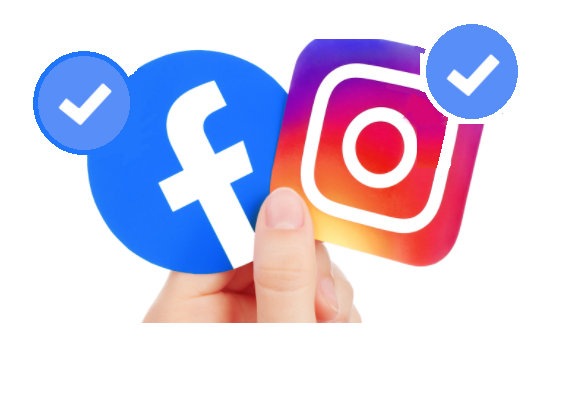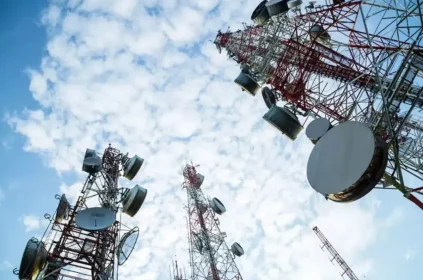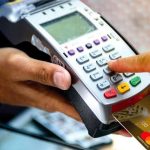Accounts verification scams have flooded Social media websites and apps which have become popular hangouts for scammers and hackers.
The new scam is majorly taking place on Twitter, Facebook and Instagram as more users keep falling victims.
Recently, some scammers took to Twitter, Facebook and Instagram to offer fake promises of accounts verifications to unsuspecting users.
Other Types of Scams on social media are in forms such as fake ads that look real.
Others are romance scams, grant money or fake giveaways and online shopping.
Some of the fraudsters, however, charged unsuspecting victims between $1000 and above for the enticing but fake promises.
Nevertheless, many people fell victims and many are still falling victims to these scammers.
How they operate:
The scammers usually operate by sending direct messages (DMs) or chatting up their unsuspecting victims.
Some compromise users accounts and create posts and screenshots on the stolen accounts claiming to have earned money.
For Scam pages and accounts that promise money to victims, they encourage users to contact them (most commonly via WhatsApp).
They would also offer to make their victims’ accounts verified without following due processes taken by the platforms.
Although some victims said they knew it was scam, however, they fell for it after the scammers showed videos and picture evidence.
A victim told CNET saying, “The realistic part of me was like, ‘don’t fall for this scam.”
“But then he started sending all these videos and photos of him being able to do it.”
“All these little red flags were going off in my brain, but I was super excited.”
“I wasn’t thinking clearly.”
So, what may have started with a friend request soon turned to account hacking, hijacking or swindling of funds.
Why people fall victims to scammers on social media:
People often become victims of fraudsters for various reasons.
Some users who are legitimate account holders or influencers want their accounts verified to show authenticity.
They also want account verifications to differentiate them from fakers.
ALSO READ: Malicious iPhone, iPad, Macs-crashing Networks Now In Circulation
The verification badges have also morphed into status symbols that give social media users bragging rights.
So, scammers and hackers try to lure users who want to get verified into handing over their personal information.
Some Revealed Scammers:
A recent case involving the victim described above was a scammer, Enver Ceylan who operated on both Instagram and Facebook.
Ceylan had put up a profile of himself saying he is a Turkish social media consultant.
He also claimed he is a musician and actor who has “played the lead role in many TV series and movies.”
The scammer claimed he offered services like helping Facebook and Instagram users with advertising issues.
He claimed he could also grow their accounts.
Ceylan displayed a form that asked TikTok users to fill out personal information to get their account verified.
“Your account has been followed for 30 days, and it has been determined that you are eligible to receive the TikTok Blue Badge,” he lured his victims.
Also, he displayed a form under TikTok’s logo, asking for a user’s password, address and phone number.
He also, even boasted, “I can set up a high-follower instagram account for you.”
The scammer also claimed, he could “enlarge your Instagram, Facebook, YouTube accounts.”
Similarly, an account called ig.verificationbadgeservice tried to lure users for fake Instagram blue badge.
The scammer urged users to apply through an online form rather than directly on Instagram, citing pandemic.
Another one on Instagram, marion_digital also promised the blue badges.
Also, a similar account, elisasupporteam, promised to secure one Omar Bham, a 32-year-old cryptocurrency blogger in Las Vegas, the blue badge.
The scammer sent Omar Bham direct messages from Instagram accounts claiming they can get him verified.
All the scammers charged between $1,000, 100,000 and $2,200 as verification fees.
Loses to online scammers and hackers:
Recently, many people lost their hard earned money running into millions of dollars to scammers.
Also, most influencers and even celebrities equally saw their accounts hacked and seized by hackers.
Lately, US Federal Trade Commission warned that various scams on Facebook, Instagram and other social media sites have increased.
It said in the first six months of year 2020 alone, social media users lost nearly $117 million to scammers.
The commission added that in Fall of 2019, the loss was $134 million.
In Nigeria, hundreds of scam accounts flooded Facebook, Instagram, Twitter, LinkedIn, and TikTok.
The accounts, as discovered, all targeted Nigerians.
Investigation by Stanford Internet Observatory discovered 129 fake Facebook Pages and personal accounts.
It also found 59 fake Instagram accounts, 21 Twitter accounts, 18 fake LinkedIn accounts and five fake TikTok accounts.
The scam accounts enticed individuals to send money via bank transfers with the promise of offering instant returns.
While many fell victims, loses to similar scams by Nigerians have continued to run into thousands and millions.
Also, recently, a Lagos-based researcher, Yemi Adewoye’s personal and business Instagram accounts were hacked.
The hacker additionally gained access and compromised her Gmail account, seizing it.
The hacker assumed her identity and posted screenshots encouraging her followers to invest in a certain fake pyramid scheme.
Although she reported the account, it took time before she regained her accounts.
However, by then, the hacker had defrauded her followers of funds.
Similarly, In 2020 for instance, hackers hijacked the accounts of American celebrity, Kim Kardashian and that of current President, Joe Biden.
The hackers used the accounts to lure gullible people to invest in Bitcoins.
Twitter admits blame:
Although the social media platforms frequently take actions against such fake accounts, they don’t always see all.
For instance, Twitter recently admitted to mistakenly verifying a group of accounts that turned out to be fakes.
Twitter, however, said it has permanently suspended the accounts after re-launching its public verification program.
“We mistakenly approved the verification applications of a small number of inauthentic (fake) accounts.”
“We have now permanently suspended the accounts in question, and removed their verified badge, under our platform manipulation and spam policy.”
Twitter also said it permanently suspended about 270 accounts linked to the scam targeting Nigerians.
The ‘bird’ app got to suspend the accounts after a data scientist, Conspirador Norteño, raised the alarm.
Norteño said he discovered six verified accounts which, outrageously, had just been created just on June 16th, 2021!
He said the accounts had 976 suspicious followers in common and all were created between June 19th and June 20th.
“These 976 accounts are part of an astroturf botnet consisting of (at least) 1212 accounts.”
“The network is split into followers which follow the aforementioned verified accounts as well as other members of the botnet, and followees, which are followed by the other bots. pic.twitter.com/wKKfC2PRX8 — Conspirador Norteño (@conspirator0) July 12, 2021.”
Facebook Takes Action:
Similarly, Facebook has said it takes action against suspicious accounts believed to be scammers.
It said it has suspended dozens of fake Facebook and Instagram accounts too.
Facebook said it conducts “regular sweeps both on and off the platform to remove malicious actors from Instagram.”
“If we detect that verification was acquired in a malicious way, or that an individual is selling verified accounts to others, we will take action that could lead to permanent removal from Instagram.”
However, despite the measures taken and still being taken by the social media platforms to curb frauds, the scams still continue.
So, users of social media platforms must beware.
Found this interesting? Share!

























 and then
and then